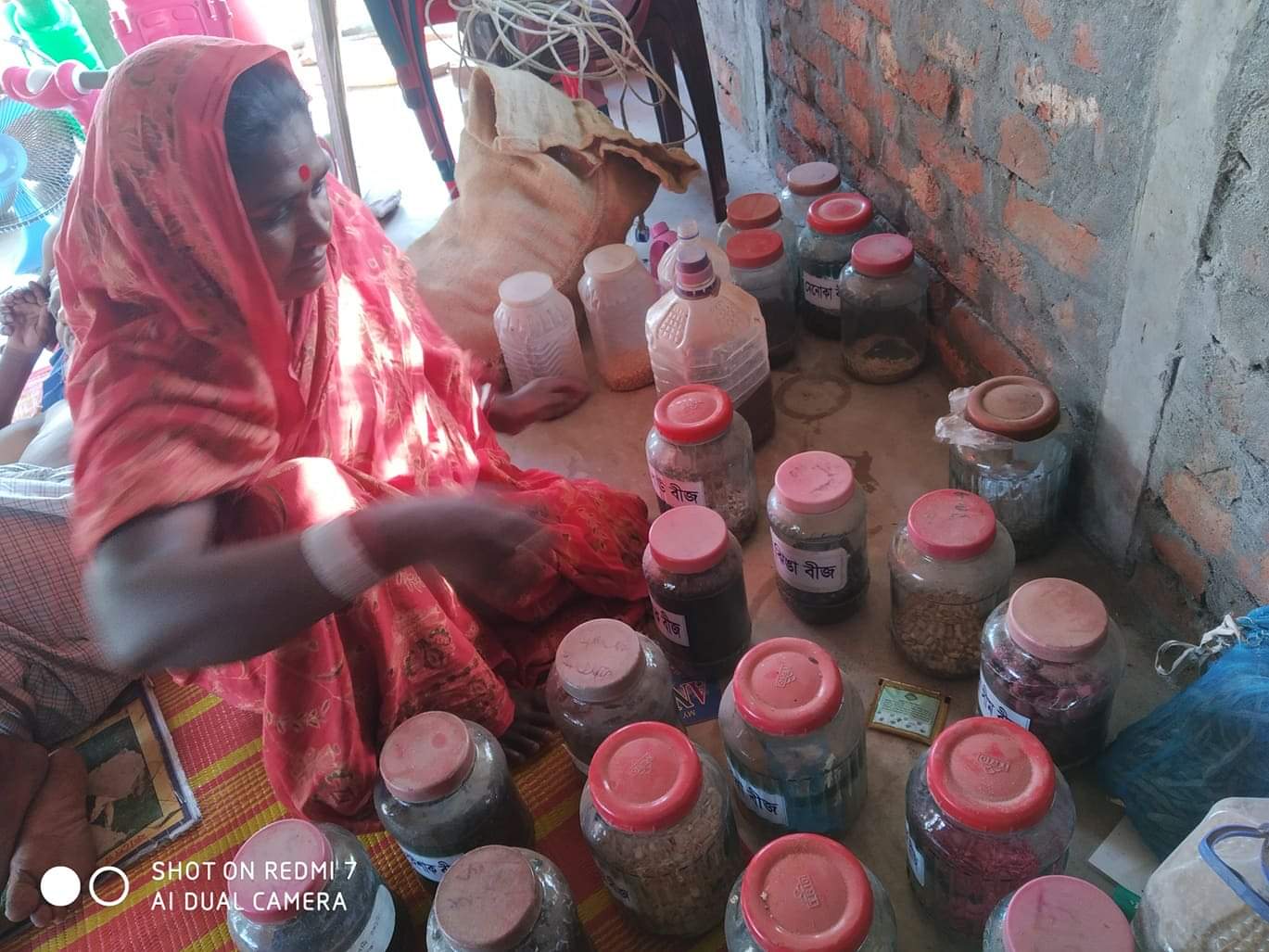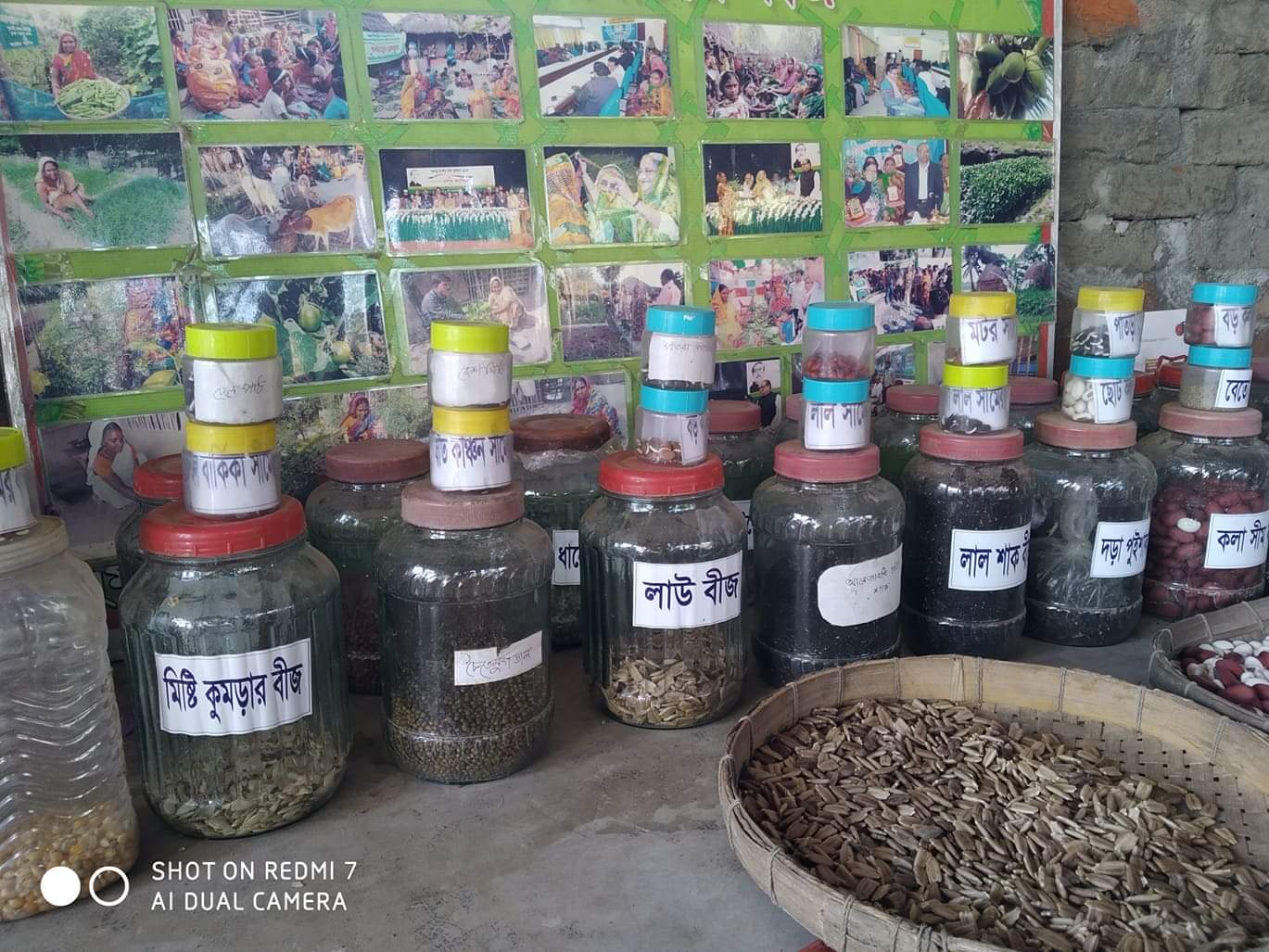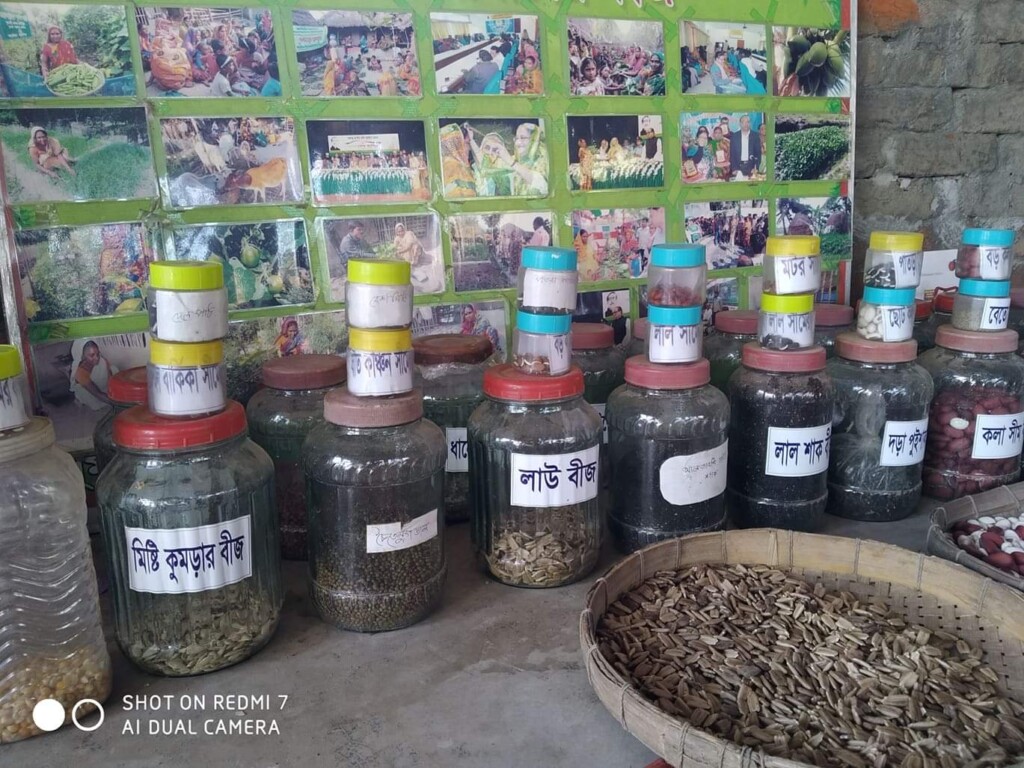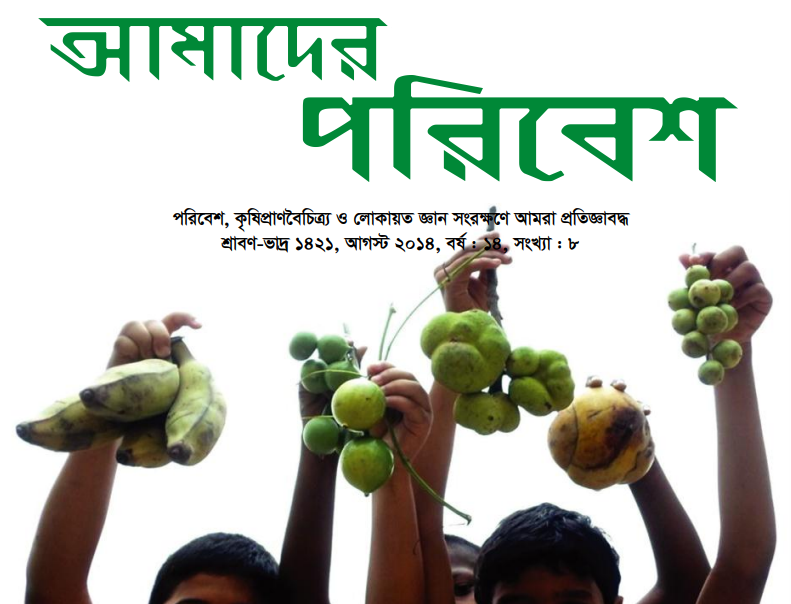Gazi Al Imran from Shyamnagar, Satkhira
The farmers in the coastal region of Bangladesh practiced sustainable agriculture and conserved the seeds of all t local varieties in their house. These seeds were conserved in different earthen pots to farm in the year as well as exchanged them with others. But today the culture of seed conservation and exchange has faded away in the area due to natural disasters and practice of modern agriculture which requires external agriculture inputs such as seeds and fertilizers. It was also seen that greenery was practiced all over the coast by farmers through cultivating different types of vegetables including local varieties of paddy. There were more than 100 local varieties of paddy in the farmer’s field during that time. But in course of time the peasantry has lost all these things and tradition of the coast centered round crops has almost got extinct. Besides, many paddy and vegetables are on the verge of extinction from the farmer’s field. However, in spite of these adversities some farmers in the area are still now adopting sustainable agriculture and trying to bring back rich agriculture tradition and heritage.

Nonetheless, during the visit made to the agriculture farms of Dhupghat farmer Alpana Rani Mistri it has been seen that the women farmer dried some types of vegetable seeds in her yard which she will conserve. This marginalized woman does not stop at maintaining the diversity and tradition in agriculture. In her yard different types of vegetable seeds are kept in different containers including blankets, challan, baskets and kula. These vegetable include: eggplant, puishak, jhal, pal, data shak, red shak, seeds of various species including 22 species of beans.
Her initiative to conserve seeds and practice sustainable agriculture has attracted the attention of other farmers. Thus, today this range is slowly spreading among the conscious farmers of the coast. Farmers have now learned to distinguish between local seeds and hybrid seeds. It is to mention that hybrid seeds are available in the market and has occupied most of the farmers’ fields. According to the farmers, these hybrid seeds are not safe on the coast. Besides, farming with these seeds farmers have to abide by the advice of the companies where farmers are prescribed to use chemical fertilizers and pesticides for good yields. These chemicals are harmful to human health, soil health, health of various biodiversity and air health.
There is an organization called Krishak Seva Sangathan run by farmer Sirajul Islam in Shymanagar of Satkhira. Sirajul Islam was awarded Chanel-i medal for his contribution in agriculture. Through the organization which he leads Mr. Islam so far has conserved 128 types of local varieties of paddy. He maintains the local rice variety by cultivating these paddy every year. Talking to farmer Sirajul Islam about the paddy, he said, ‘The amount of pesticides and fertilizers required for planting local paddy is very low. We also try to cultivate this rice in organic method. Hybrid rice requires more fertilizers and pesticides. The hybrid may ensure higher yields, but the production cost of farmers is also high while farming with local varieties farmers can ensure profit as well as healthy condition of soil and environment.’ We are trying to practice sustainable agriculture so that we can conserve and protect the seeds of different crops and keep the coast safe’-he added.
On the other hand, Ganesh Mandal of Dhumghat has conserved 1200 types of seeds with the aim to revitalize the seed tradition of the coast. Mr. Mandal is conserving tree seeds along with various vegetable seeds. He also saves different types of seeds whenever he has time. The practice of seed exchange has continued to revive the ancient tradition. He gives seeds to people in need and takes other seeds that people have in exchange for seeds.

The seed exchange was also seen at the house of Alpana Rani Mistri, a farmer who received Bangabandhu Krishi Padak in Dhumghat village. So far she has exchanged seeds of more than two and a half hundred varieties of medicinal plants in his house with other farmers of the village. Farmer Alpana Rani Mistry said, ‘We are losing local seeds due to natural disasters and high prevalence of hybrids. In the lure of more profit, we have put ourselves at risk by using hybrid seeds. The cultivation of hybrid seeds has resulted in the use of large quantities of pesticides which have detrimental effects on the human body as well as the soil has lost its fertility.’
However, it is good sign to see among the farmers in the coast. Today they are more aware about their rights on agriculture and realize the importance to keep their own seeds. BARCIK through different activities has been making efforts to encourage farmers adopting sustainable agriculture. The organization has been extending facilitating and technical supports to the communities and farmers in the coast so that they could fight for their rights and practice their traditional agriculture which keeps the environment safe and alive. Thus, farmers in the coast now have started thinking about their future. The realized that if they continue to cultivate hybrids with pesticides in this way, one day the soil will lose its quality once and for all. The ecosystem of the environment will collapse. And it can happen as a result of excessive use of these pesticides. Therefore, the senior and experienced farmers think that the cultivation and conservation of local seeds can solve their problems and keep their soil and environment safe.
Translated by Silvanus Lamin


